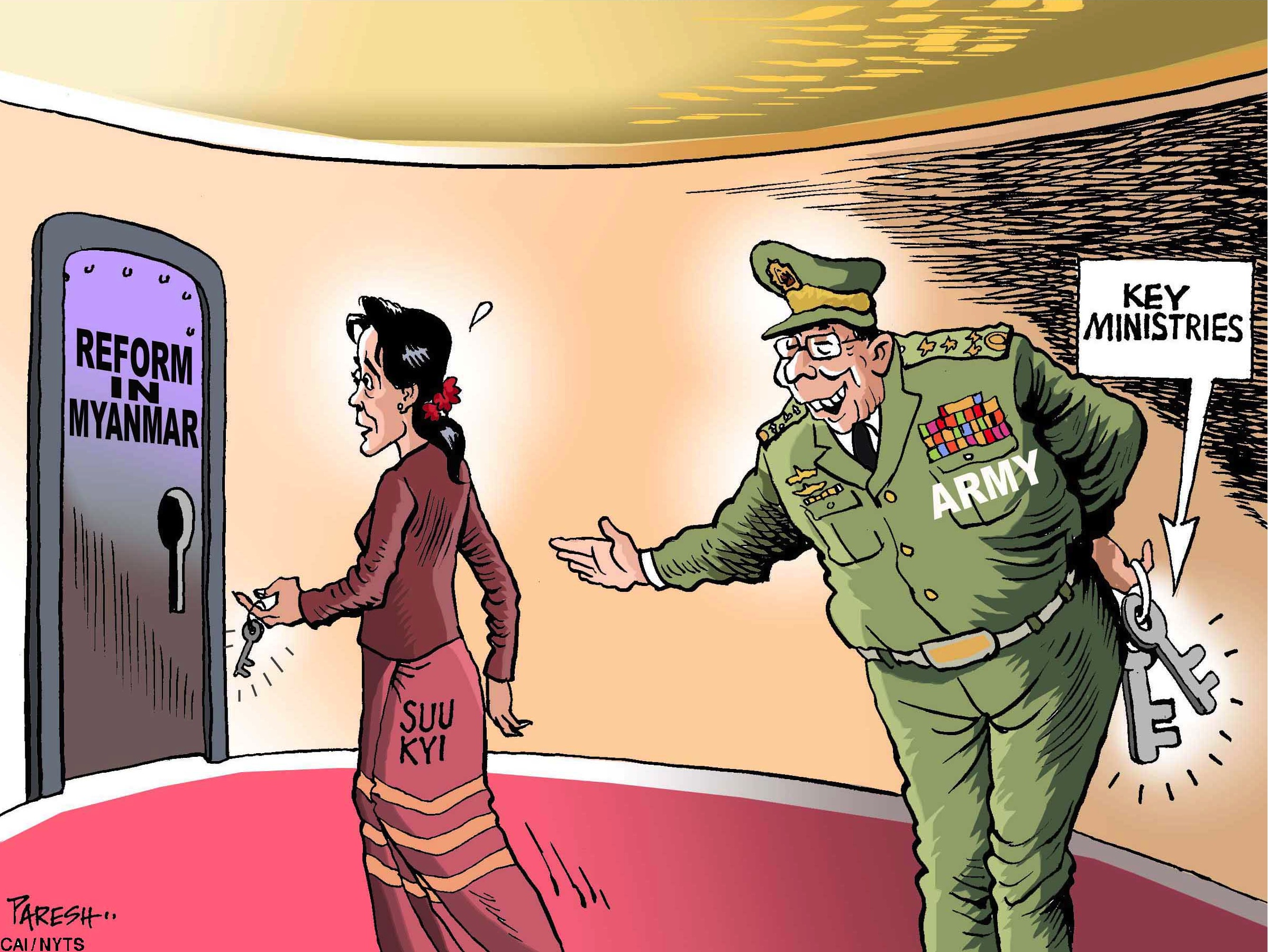The Association of Southeast Asian Nations has long been envisioned as a foundation stone for stability, security and increased prosperity in Asia. But with uncertainty plaguing the political systems of Myanmar, Malaysia and Thailand, ASEAN may be entering a period of policy and diplomatic inertia. At a time when China's economic downturn and unilateral territorial claims are posing serious challenges to the region, ASEAN's weakness could prove highly dangerous.
The problems that are now bedeviling Myanmar, Malaysia and Thailand may appear to have little in common. But they all spring from the same source: an entrenched elite's stubborn refusal to craft a viable system of governance that recognizes new and rising segments of society and reflects their interests in government policy.
And yet, despite the shared roots of these countries' political dysfunction, their prospects vary. Surprisingly, hope is strongest in Myanmar, where the military junta recognized the need for change, exemplified in the 2010 decision to free the long-imprisoned Nobel Peace laureate Aung San Suu Kyi and embark on a transition to democracy.

















With your current subscription plan you can comment on stories. However, before writing your first comment, please create a display name in the Profile section of your subscriber account page.